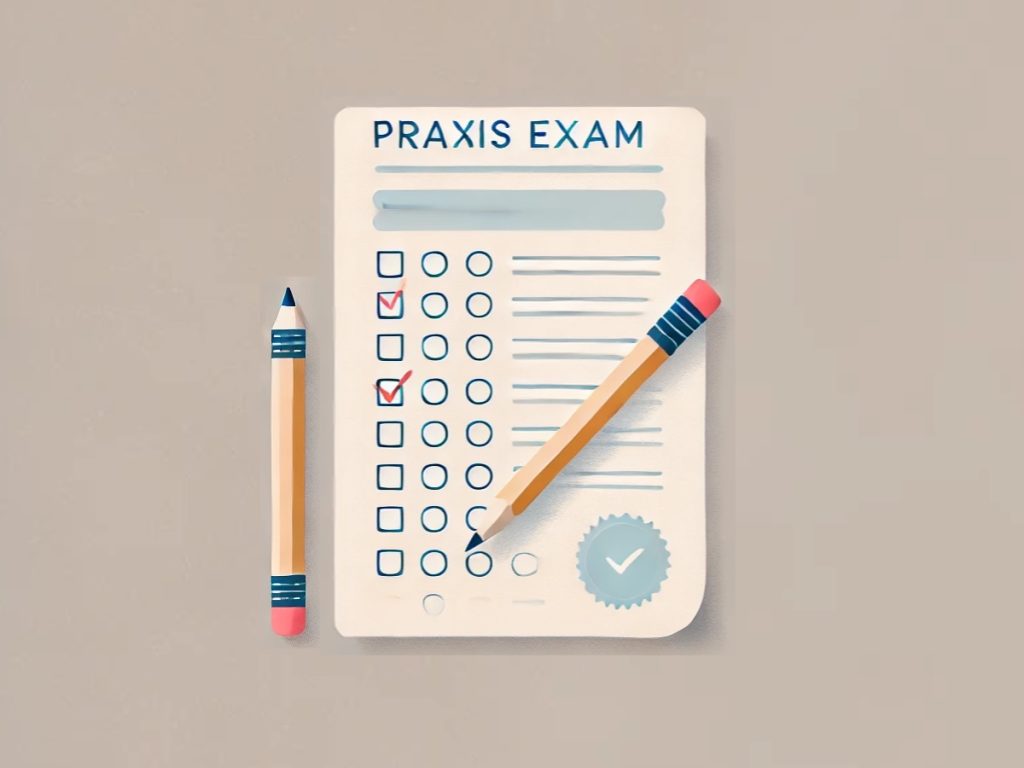How to Become a Medical SLP
Medical speech-language pathologists (SLPs) perform vital work which brings satisfaction to healthcare practice. Patients who have suffered illness or injury can recover their communication skills and eating safety together with improved quality of life through the assistance of medical speech pathologists. Medical SLPs practice in healthcare settings including hospitals and rehabilitation centers and skilled nursing facilities and outpatient clinics rather than a school speech pathologists who work primarily in schools.
Speech-language pathologists in medical settings provide treatment to patients who have various medical conditions. Your professional work may involve helping stroke patients develop their speech clarity and swallowing safety. You might find your daily tasks include helping patients with Parkinson’s Disease or dementia to maintain their communication skills as long as possible. Your professional duties could involve helping people recover from traumatic brain injuries to develop their cognitive abilities including memory and attention and problem-solving skills. Or you might assist patients who undergo head and neck cancer surgery to recover their speech and swallowing abilities.
You will find that with the complex nature of medical conditions treated by Medical Speech Pathologist is widely varied and your team will change from case to case. You will frequently work with a combination of doctors, nurses, occupational therapists, physical therapists, dietitians and social workers. You will also come to realize that you are helping individuals and families through their most difficult experiences and as such empathy, patience and effective communication can be as important as your clinical expertise. Medical speech-language pathologists choose a career path that unites scientific knowledge with empathy to create meaningful improvements in patient health outcomes and independence and life quality.
Step 1 – Earn a Bachelor’s Degree in Speech Pathology
Your first important step to become a medical speech pathologist requires obtaining your SLP bachelor’s degree. Students who want to study speech-language pathology typically choose communication sciences and disorders (CSD) but multiple fields lead to this profession. Students can enter graduate programs through various majors including psychology, linguistics, biology and education provided they complete required prerequisite courses.
The typical prerequisite courses consist of anatomy and physiology classes for speech and hearing mechanisms and phonetics and speech and language development and audiology basics and neurology or cognitive sciences. The fundamental courses establish basic knowledge about typical speech and language and swallowing operations together with basic information about disorders that impact these abilities. Clinical practice requires essential interpersonal skills which is why students should take psychology or counseling courses.
The value of practical experience through volunteer work and research activities during undergraduate studies should not be underestimated. Your early experience at hospitals and rehabilitation facilities and clinics allows you to better understand the profession and confirm your career direction. Your future graduate program applications will benefit from research project assistance and observing practicing SLPs because these experiences show your dedication to clinical practice.
Step 2 – Complete a Master’s of Speech-Language Pathology
The essential next step following your bachelor’s degree should be obtaining a master’s degree in speech-language pathology. The two-year graduate program holds the necessary requirement for speech pathologists to obtain their professional license. Students who enroll in ASHA-accredited master’s programs receive comprehensive training through classroom education and clinical practice which prepares them for clinical work after graduation.
Your graduate education will provide extensive training in medical-related SLP subjects which include dysphagia and motor speech disorders and neurogenic communication disorders and cognitive-communication disorders and voice disorders and advanced diagnostic methods. The specialized courses provide both theoretical knowledge expansion and practical training for clinical assessments and therapeutic practices in medical settings. Some universities offer these courses in an online or hybrid (partially online) format.
Your career readiness will improve if you select a program that specializes in medical speech-language pathology. The medical SLP tracks at Vanderbilt University and University of Wisconsin-Madison and University of Iowa and MGH Institute of Health Professions maintain a strong reputation among students. These educational institutions maintain strong connections with hospitals and rehabilitation centers and skilled nursing facilities which provide outstanding clinical training opportunities to their students.
The direct patient care experience through clinical placements helps you develop your skills in assessing and treating complicated communication and swallowing problems under the guidance of professionals. The clinical experiences enable students to work with interdisciplinary teams which helps them develop skills needed for medical practice.
Step 3 – Gain Supervised Clinical SLP Experience
Your master’s training will likely require at least 400 supervised clinical hours which you must complete before graduation. You will progress from observing licensed clinicians during hands-on training to manage patient care independently with supervisory guidance. Aspiring medical speech pathologists need to obtain experience in healthcare facilities including hospitals and rehabilitation centers and skilled nursing facilities.
Graduate programs establish powerful clinical partnerships which secure placement opportunities in prominent healthcare institutions. Students at Vanderbilt and MGH Institute benefit from hospital partnerships which enable them to work with difficult cases that include stroke recovery and traumatic brain injuries and neurological diseases and critical care situations. The clinical placements allow students to learn advanced evaluation methods and treatment approaches including swallowing assessments and cognitive rehabilitation strategies.
The supervised clinical experience serves as an essential link between academic theory and practical application to develop your skills for Clinical Fellowship and independent practice. The successful completion of clinical rotations creates potential job openings in medical facilities for future employment.
Step 4 – Pass the Praxis Exam in Speech-Language Pathology
Your next step after finishing master’s coursework should be passing the Praxis exam for speech-language pathology. The Educational Testing Service (ETS) administers this standardized exam to evaluate your knowledge of essential subjects including assessment techniques and diagnosis procedures and treatment planning methods and professional ethics standards. You must achieve at least 162 points on the 100-200 scale to become certified and licensed.
Praxis preparation is focused on helping students to review their academic materials. They can do this by studying official ETS guides, completing online practice exams and joining study groups. The assessment covers multiple subjects including swallowing disorders, speech sound production and language disorders, voice and fluency issues, audiology basics, and neurogenic communication disorders.
You might be worried about passing the Praxis – most students are – but you don’t need to be. If you don’t quite hit that 162 score that you need, you can retake the Praxis after a 28 day waiting period. Analyze your score report to determine which topics require additional study before you concentrate your preparation in those areas. Your dedication to study combined with perseverance will help you achieve success on the Praxis exam to advance in your medical speech pathologist career.
Step 5 – Complete a Clinical Fellowship (CF) Year
Your next action after passing the Praxis exam should be starting a Clinical Fellowship Year (CFY). The professional experience under supervision typically spans nine months to one year and serves as a transition from graduate student to independent clinician.
Begin your search for the desired clinical fellowship placement as early as possible before graduation especially when targeting medical sites such as hospitals or rehabilitation centers. ASHA’s career portal and individual hospital career pages serve as the main platforms for finding medical SLP CF position job listings. Networking is also important because it can help you find ideal opportunities through connections with former supervisors and professors who can provide valuable recommendations.
The application process for CF positions requires the same professional approach as any other job application. Create a professional resume which emphasizes your clinical rotations and especially those with medical significance. Show your interest in medical speech language pathology while explaining your relevant case experience during interviews, and ask questions about mentorship quality and caseload diversity and training opportunities.
Step 6 – Obtain SLP Licensure & ASHA Certification
After finishing your Clinical Fellowship Year you are prepared to get your state license and speech pathology certification through the American Speech-Language-Hearing Association (ASHA). The two credentials signify your entry into independent professional practice.
You must present your graduate degree along with your Praxis exam score and Clinical Fellowship completion documentation to obtain the ASHA certification known as the Certificate of Clinical Competence in Speech-Language Pathology (CCC-SLP). The ASHA certification proves your achievement of challenging national standards and holds great value throughout medical institutions because many healthcare employers demand it.
You must apply for a license at the same time through your state’s professional licensing board. The licensure process requires you to present academic records along with clinical experience records and Praxis results and evaluations from your fellowship supervisor. Every state has unique licensing requirements that can be checked by visiting the state licensing board website. Visit our state guide pages to see an overview on your specific state licensure requirements.
After obtaining your full speech pathology certification and license you will need to complete ongoing educational requirements to stay current with clinical practices and research. The process of obtaining licensure and ASHA certification establishes your professional competence while providing the foundation for success as a medical speech-language pathologist.
Optional – Pursue a SLP Doctorate Degree or Specialization
Medical speech pathologists can practice with only a master’s degree but some professionals obtain clinical doctorates (SLPD) or PhDs in speech-language pathology beyond their initial education. The clinical research and academic roles together with leadership positions and specialized advanced practice make doctoral programs attractive to practicing clinicians. The SLPD program provides advanced clinical training beyond the basics while the PhD program focuses on research preparation for teaching or studying communication disorders.
Some states do not currently offer SLPD programs. If your state is one that does not, then you may either need to relocate to another state to further your education, or look into the online options offered by the universities of other states. If you decide to look into online speech pathology programs, be sure to verify if they require any regular visits to campus or other locations.
Specialized speech-language pathology certifications beyond doctoral degrees serve to improve your clinical abilities while making you more attractive to potential employers. The LSVT LOUD certification stands out as a popular choice for voice therapy treatment of Parkinson’s disease patients and individuals with neurological conditions. The evidence-based program enables patients to enhance their vocal loudness together with clarity and overall communication abilities. Medical facilities and rehabilitation centers strongly desire speech-language pathologists who have received LSVT LOUD training. The LSVT Global organization provides training and certification opportunities for this program.
Medical SLPs who obtain VitalStim Therapy certification will benefit from a neuromuscular electrical stimulation (NMES) approach that targets swallowing disorders (dysphagia) treatment. The VitalStim training enables clinicians to help patients with severe swallowing problems and leads to better results than standard therapy alone. The certification process includes academic study and practical instruction as well as proficiency tests provided by CIAO Seminars and similar providers.
The Board Certification in Swallowing and Swallowing Disorders (BCS-S) represents an outstanding career achievement for medical speech-language pathologists who want to develop their skills as advanced clinical specialists. The BCS-S credential shows both deep experience and specialized knowledge and clinical expertise in dysphagia. The certification process requires candidates to show relevant work experience and complete swallowing disorder education and pass an extensive examination. The American Board of Swallowing and Swallowing Disorders maintains direct access to all necessary information about the certification process.
Medical Speech Language Pathology Salary: How Much Can I Earn?
A career as a medical SLP enables you to make significant patient life improvements while providing a promising salary and stable job growth. Speech-language pathologists earn a median annual salary of $89,290 according to the Bureau of Labor Statistics but medical facilities tend to pay higher wages exceeding $100,000 per year for experienced hospital and skilled nursing facility staff. Your medical speech pathologist salary will increase based on your location and work experience as well as your employment setting and professional certifications which may include VitalStim and LSVT LOUD.
Top Paying States for Medical SLP
| State | Annual Salary | ||
|---|---|---|---|
| Washington | $103,459 | ||
| Washington D.C | $103,224 | ||
| New York | $99,936 | ||
| Massachusetts | $99,761 | ||
| Alaska | $98,375 | ||
*According to ZipRecruiter
Medical SLP Salary Distribution
| 25th Percentile | $75,000 | ||
| 50th Percentile | $91,346 | ||
| 75th Percentile | $107,500 | ||
| 90th Percentile | $124,500 | ||
*According to ZipRecruiter
Speech pathologists benefit from an extremely positive job outlook in addition to their above average salaries. The projected growth rate for SLPs exceeds the national average, with a projected growth of 18% during the upcoming decade. The growing number of elderly patients who need rehabilitative care because of strokes and dementia and Parkinson’s disease and other age-related disorders drives most of this expansion. Specialized speech-language pathology services become more necessary because medical progress enables more people to thrive in spite of critical medical conditions.
The combination of professional satisfaction and personal fulfillment with strong job security and advancement opportunities makes being a medical speech-language pathologist a highly desirable career choice. Your career path will be filled with diverse opportunities for growth and patient life improvement through quality education and specialized training and continual learning investments.
Related Articles

Speech Pathologist vs Speech Therapist: What’s the Difference?
If you have ever been researching speech-language pathology careers and come across the words ‘speech pathologist’ and ‘speech therapist’, you might wonder if they are

What is the Speech-Language Pathology Interstate Compact?
If you are interested in pursuing a career in SLP and have been researching licensing requirements or are simply interested in learning more about SLP

What is the Praxis Exam for Speech Language Pathology?
If you are pursuing the position of a speech-language pathologist, then you may have heard of the Praxis exam from your professors, classmates, or even
